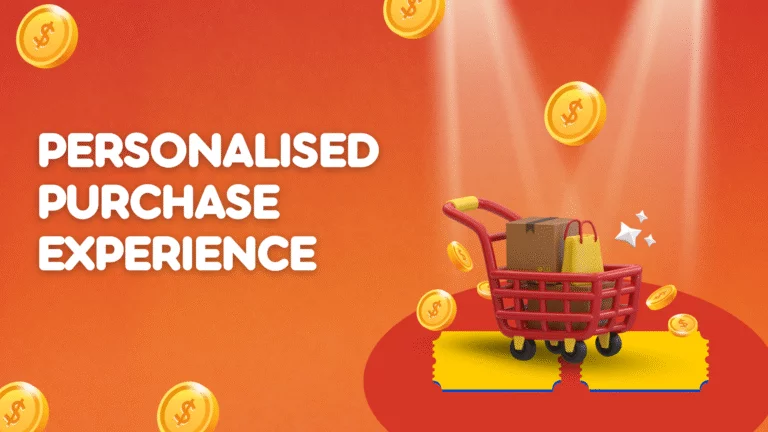In today’s digital landscape, consumers don’t just expect efficiency—they expect relevance. Whether they’re buying shoes or software, shoppers want the experience to feel tailored to them. That’s the promise of a personalised purchase experience—and it’s quickly becoming the gold standard in ecommerce.
From dynamic recommendations to predictive search and customised checkout flows, the brands winning in 2024 are the ones offering personalised journeys that make every shopper feel like the store was built just for them.
What Is a Personalised Purchase Experience?
A personalised purchase experience is the process of tailoring every step of the customer journey—search, discovery, product suggestions, and checkout—based on individual user data.

This can include:
- Displaying products based on browsing history
- Recommending items frequently bought together
- Customising homepage content by location or preference
- Triggering reminders for abandoned carts
- Adjusting pricing or offers based on loyalty or purchase patterns
The result? A more relevant, engaging, and satisfying shopping journey.
Why Personalisation Matters in the Buying Process
Let’s break down why investing in personalisation pays off:
1. Improves User Engagement
When shoppers see what they’re actually interested in, they spend more time browsing—and are more likely to convert.
2. Increases Average Order Value (AOV)
Smart recommendations (e.g., “You might also like…”) encourage users to add more to their cart.
3. Reduces Cart Abandonment
By remembering preferences and offering reminders or incentives, personalisation helps bring users back to complete their purchase.
4. Boosts Loyalty and Retention
Customers are more likely to return to brands that remember them, their preferences, and their shopping behavior.
5. Enhances Mobile UX
A personalised mobile experience cuts down on navigation time—crucial on smaller screens and shorter attention spans.

🔍 Real-World Examples of Personalised Purchase Experiences
| Example | Description |
|---|---|
| Personalised homepage | Highlights recently viewed or trending items for that user |
| Smart search autocomplete | Predicts search intent and ranks items based on past behavior |
| Triggered email offers | Discounts sent based on products left in cart or wishlist |
| Geo-targeted recommendations | Suggests local shipping options or popular products in the user’s region |
Technologies That Enable Personalisation
Creating a personalised purchase experience requires access to the right tools:
- AI-powered search engines
- Customer data platforms (CDPs)
- Behavioural analytics tools
- Recommendation engines
- Email automation platforms
Many ecommerce sites also integrate personalisation into their search experience, product pages, and checkout flows—often with minimal code.
Is There Any Tool That Supports Personalised Ecommerce Journeys ?
While many tools exist to support personalised ecommerce, ExpertRec stands out by enabling:
- Behaviour-based product ranking in search results
- Personalised autocomplete based on user history
- Cross-device session continuity
- Smart filters and dynamic content in product listings
- Easy integration with Shopify, WooCommerce, and more
By enhancing the search-to-checkout flow, ExpertRec ensures users see the most relevant results at every step of the journey—helping you boost conversions and build trust.
📌 Conclusion: Relevance Is the New Currency
In a world of limitless options, the brands that win are those that understand who their customers are—and adapt in real time.
A personalised purchase experience isn’t just a nice-to-have—it’s a competitive advantage. It drives conversions, deepens loyalty, and delivers value to every visitor, faster.
And with the right tools in place, personalisation doesn’t have to be complex. It just has to be smart.
Frequently Asked Questions
It’s a customer journey tailored to the individual—showing relevant products, search results, and offers based on personal data and behavior.
Why does personalisation matter in online shopping?
It helps users find what they need faster, improves satisfaction, and increases conversions.
Can small businesses offer personalised experiences?
Yes—using tools like AI search engines, recommendation plugins, and email automation, even small stores can offer effective personalisation.
How does ExpertRec support personalisation?
ExpertRec offers real-time personalised search, behavioural ranking, and product filtering tailored to user intent—all without needing a dev team.
Is personalisation good for mobile shoppers?
Absolutely. It streamlines navigation and reduces clicks—key to improving conversions on smaller screens.




